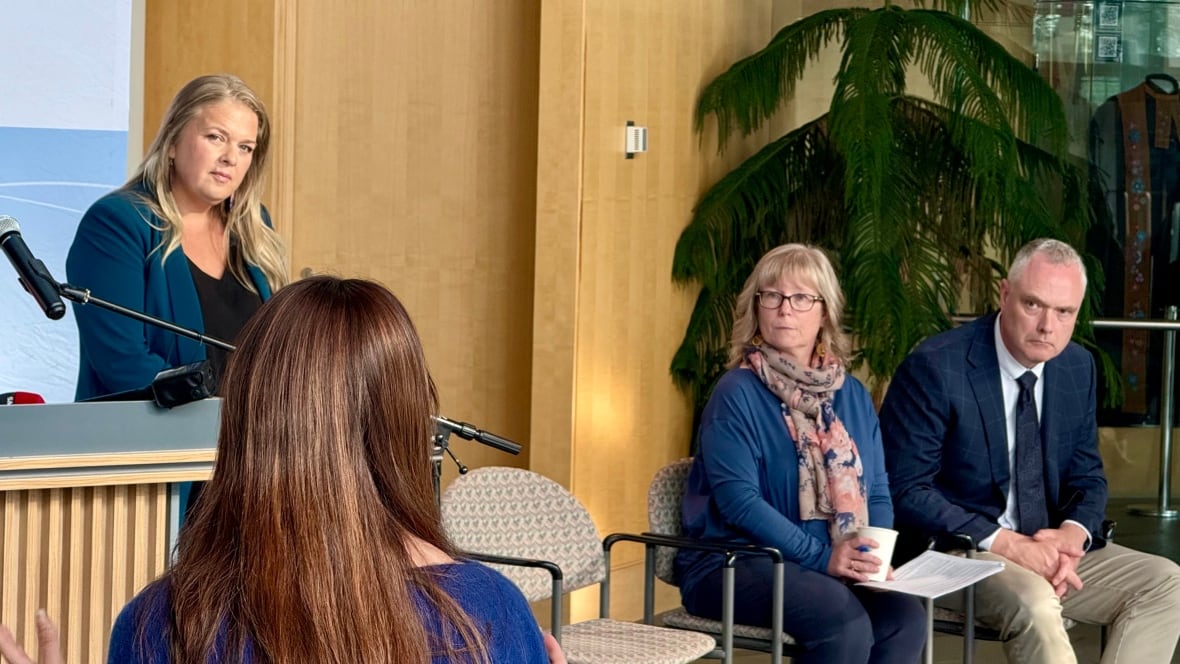Education
N.W.T. Schools Face Funding Hurdles for Education Assistants

Education authorities in the Northwest Territories (N.W.T.) are grappling with challenges related to new funding aimed at addressing the loss of federal support for education assistants. This situation follows the federal government’s recent decision to cut funding for many positions under the provisions of Jordan’s Principle. In response, N.W.T. Education Minister Caitlin Cleveland announced the allocation of up to $14 million for education assistants, but access to these funds comes with stringent conditions that could hinder some school boards.
The new funding initiative, known as the Support Assistants Initiative, was introduced after the federal government ceased funding for requests related to off-reserve schools under Jordan’s Principle, effective February 2024. This federal policy change has resulted in the potential loss of approximately 79 education assistants at the Yellowknife Education District No. 1 (YK1) and more than 90 across the N.W.T.
In order to qualify for the territorial funding, educational bodies must first apply any existing surpluses toward hiring education assistants. This prerequisite raises concerns among school administrators about its feasibility.
Souhail Soujah, superintendent of the South Slave Divisional Education Council (SSDEC), expressed that utilizing their surplus in this manner is impractical. He emphasized that the surplus is essential for covering emergencies, student support, technology needs, and infrastructure projects. “This would set us up for failure,” Soujah stated in an email to CBC News, highlighting the risk of compromising educational quality by reallocating necessary funds.
As the school year progresses, YK1 remains uncertain about its eligibility for the new funding. Superintendent Shirley Zouboules described the situation as conditional, stating, “I basically applied on a hope and a prayer to see if we would be eligible for anything.” She pointed out that surpluses are often designated for specific expenses, such as substitute teacher costs, but expressed optimism about the potential for securing funding.
The N.W.T. government’s rationale for requiring the use of surpluses is to ensure the responsible allocation of public funds. According to Agata Gutkowska, spokesperson for the N.W.T. education department, the government aims to prioritize direct support for students. “By asking education bodies to draw down their surpluses first, we are reinforcing the principle that available funds should be directed to front-line student support,” she explained.
As of last week, only three education bodies had applied for the funding, with decisions expected shortly. The urgency is underscored by the need for education assistants, as emphasized by Rita Mueller, president of the Northwest Territories Teachers’ Association. “Those education assistants are needed,” she stated, urging education authorities to prioritize the hiring process for these critical roles.
The context of Jordan’s Principle is vital in understanding the funding landscape. This legal rule, established by the Canadian Human Rights Tribunal, ensures that First Nations children have access to necessary services without delays. Its intent is to uphold substantive equality, recognizing that First Nations children may require additional support to achieve equitable outcomes compared to their peers.
In light of the recent operational challenges associated with Jordan’s Principle, Jennifer Cooper from Indigenous Services Canada (ISC) acknowledged the issues but reiterated that education-related requests from off-reserve schools would generally be redirected unless they meet requirements for substantive equality.
For the fiscal year 2024/25, N.W.T. schools received $58.6 million in funding tied to Jordan’s Principle, with the newly announced $14 million from the territorial government representing a fraction of that total. While YK1 awaits confirmation on its funding application, Zouboules noted that support for students can take various forms, emphasizing that assistance does not always equate to having a designated person in the classroom.
As the situation unfolds, the focus remains on how education bodies will navigate these funding obstacles while ensuring that students receive the necessary support to thrive in their learning environments.
-

 Science2 months ago
Science2 months agoToyoake City Proposes Daily Two-Hour Smartphone Use Limit
-

 Health2 months ago
Health2 months agoB.C. Review Reveals Urgent Need for Rare-Disease Drug Reforms
-

 Top Stories2 months ago
Top Stories2 months agoPedestrian Fatally Injured in Esquimalt Collision on August 14
-

 Technology2 months ago
Technology2 months agoDark Adventure Game “Bye Sweet Carole” Set for October Release
-

 World2 months ago
World2 months agoJimmy Lai’s Defense Challenges Charges Under National Security Law
-

 Technology2 months ago
Technology2 months agoKonami Revives Iconic Metal Gear Solid Delta Ahead of Release
-

 Technology2 months ago
Technology2 months agoSnapmaker U1 Color 3D Printer Redefines Speed and Sustainability
-

 Technology2 months ago
Technology2 months agoAION Folding Knife: Redefining EDC Design with Premium Materials
-

 Technology2 months ago
Technology2 months agoSolve Today’s Wordle Challenge: Hints and Answer for August 19
-

 Business2 months ago
Business2 months agoGordon Murray Automotive Unveils S1 LM and Le Mans GTR at Monterey
-

 Lifestyle2 months ago
Lifestyle2 months agoVictoria’s Pop-Up Shop Shines Light on B.C.’s Wolf Cull
-

 Technology2 months ago
Technology2 months agoApple Expands Self-Service Repair Program to Canada









